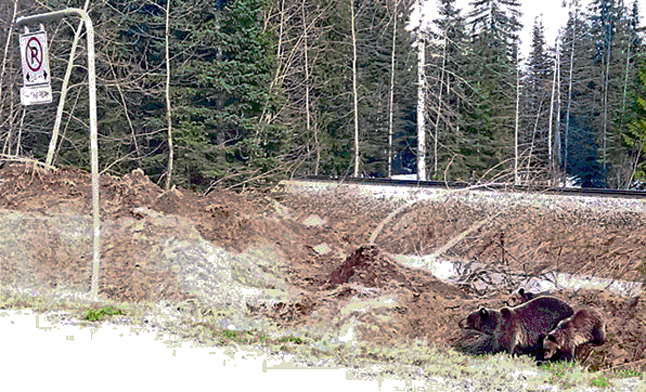
It’s that time of year again in Mount Revelstoke and Glacier National Parks!
Fresh spring vegetation is attracting animals such as bears and goats to the side of the Trans-Canada Highway where they are vulnerable to being hit by motor vehicles.
“We have already lost two black bears this week,” says Parks Canada Wildlife Specialist Tawnya Hewitt, “we are asking motorists to drive cautiously and respect speed limits, especially around blind corners.”
A statement from Parks Canada said bears have been busy at the roadside. This season, Parks Canada staff observed a black bear at the base of Mount Revelstoke and two adult grizzlies grazing at different roadside locations in Glacier – one was a female with two cubs.
Parks Canada does not encourage people to stop to view wildlife at this busy time. However, if you do choose to stop, pull onto the highway shoulder when it is safe to do so, remain in your vehicle and move on after a few moments. Never stop in the middle of the road, close to a hill, curve, tunnel, or in heavy traffic. Vehicles stopping on the side of the highway to view wildlife can create traffic jams which are dangerous to both people and wildlife.
Please pay special attention when driving and watch for wildlife. If you see a bear or other wildlife or traffic jam please report it to Parks Canada at 1-877-852-3100, the statement said.



